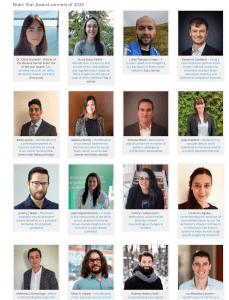Academic Neuro-Oncologist
The Department of Medicine, Faculty of Health Sciences at McMaster University and Hamilton Health Sciences invite applicants for an Academic Physician to join the Division of Neurology. This is a full-time faculty position for a period of three years (renewable). Academic rank will be commensurate with the candidate’s qualifications and experience.
Applicants will have completed training in neurology and specialty training in neuro-oncology. A combination of clinical, research and educational activities will be undertaken. Clinical activities will include neuro-oncology clinics, neuro-oncology consultation with a multidisciplinary regional oncology team, administration and monitoring of chemotherapy, neuro-oncology program development, participation in neuro-oncology clinical trials, and general neurology clinical activities. The successful candidate will be a full-time member of the Division of Neurology and will be expected to contribute to the academic mission of the Faculty and Division. The successful candidate should also have interest in undergraduate and post-graduate teaching in general neurology and neuro-oncologic disorders.
Applicants should be certified (or eligible for certification) by the Royal College of Physicians and Surgeons of Canada and must be licensed (or eligible for licensure) in the Province of Ontario.
Please apply online to job opening 37302 via the McMaster Academic Careers website (http://www.workingatmcmaster.ca/careers/) directing your application to:
Dr. W. J. Oczkowski, MD FRCPC, Professor and Academic Head Division of Neurology
McMaster University and Hamilton Health Sciences
237 Barton Street East, Hamilton, Ontario L8L 2X2
Email: oczkowsk@mcmaster.ca
Interested applicants must include an up-to-date curriculum vitae, description of training and research experience as well as the names and addresses of three professional referees.
All qualified applicants are encouraged apply; however, Canadian citizens and permanent residents will be considered first for this position. To comply with the Government of Canada’s reporting requirements, the University is obliged to gather information about applicants’ status as either Permanent Residents of Canada or Canadian citizens. Applicants need not identify their country of origin or current citizenship; however, all applications must include one of the following statements:
“Yes, I am a citizen or permanent resident of Canada” or
“No, I am not a citizen or permanent resident of Canada.”
McMaster University is located on the traditional territories of the Haudenosaunee and Mississauga Nations and within the lands protected by the “Dish With One Spoon” wampum agreement.
The diversity of our workforce is at the core of our innovation and creativity and strengthens our research and teaching excellence. In keeping with its Statement on Building an Inclusive Community with a Shared Purpose, McMaster University strives to embody the values of respect, collaboration and diversity, and has a strong commitment to employment equity.
The University seeks qualified candidates who share our commitment to equity and inclusion, who will contribute to the diversification of ideas and perspectives, and especially welcomes applications from indigenous (First Nations, Métis or Inuit) peoples, members of racialized communities, persons with disabilities, women, and persons who identify as 2SLGBTQ+.
As part of McMaster’s commitment, all applicants are invited to complete a confidential Applicant Diversity Survey through the online application submission process. The Survey questionnaire requests voluntary self-identification in relation to equity-seeking groups that have historically faced and continue to face barriers in employment. Please refer to the Applicant Diversity Survey – Statement of Collection for additional information.
Job applicants requiring accommodation to participate in the hiring process should contact:
Human Resources Service Centre at 905-525-9140 ext. 222-HR (22247), or
Faculty of Health Sciences HR Office at ext. 22207, or
School of Graduate Studies at ext. 23679
to communicate accommodation needs.






 The Canadian Association for Neuroscience (CAN) and the Canadian Institutes of Health’s Institute of Neurosciences, Mental Health and Addiction (CIHR-INMHA) are proud to announce the winners of the 2020 Brain Star Awards.
The Canadian Association for Neuroscience (CAN) and the Canadian Institutes of Health’s Institute of Neurosciences, Mental Health and Addiction (CIHR-INMHA) are proud to announce the winners of the 2020 Brain Star Awards.
 The Canadian Association for Neuroscience is very proud to announce that Dr.
The Canadian Association for Neuroscience is very proud to announce that Dr.